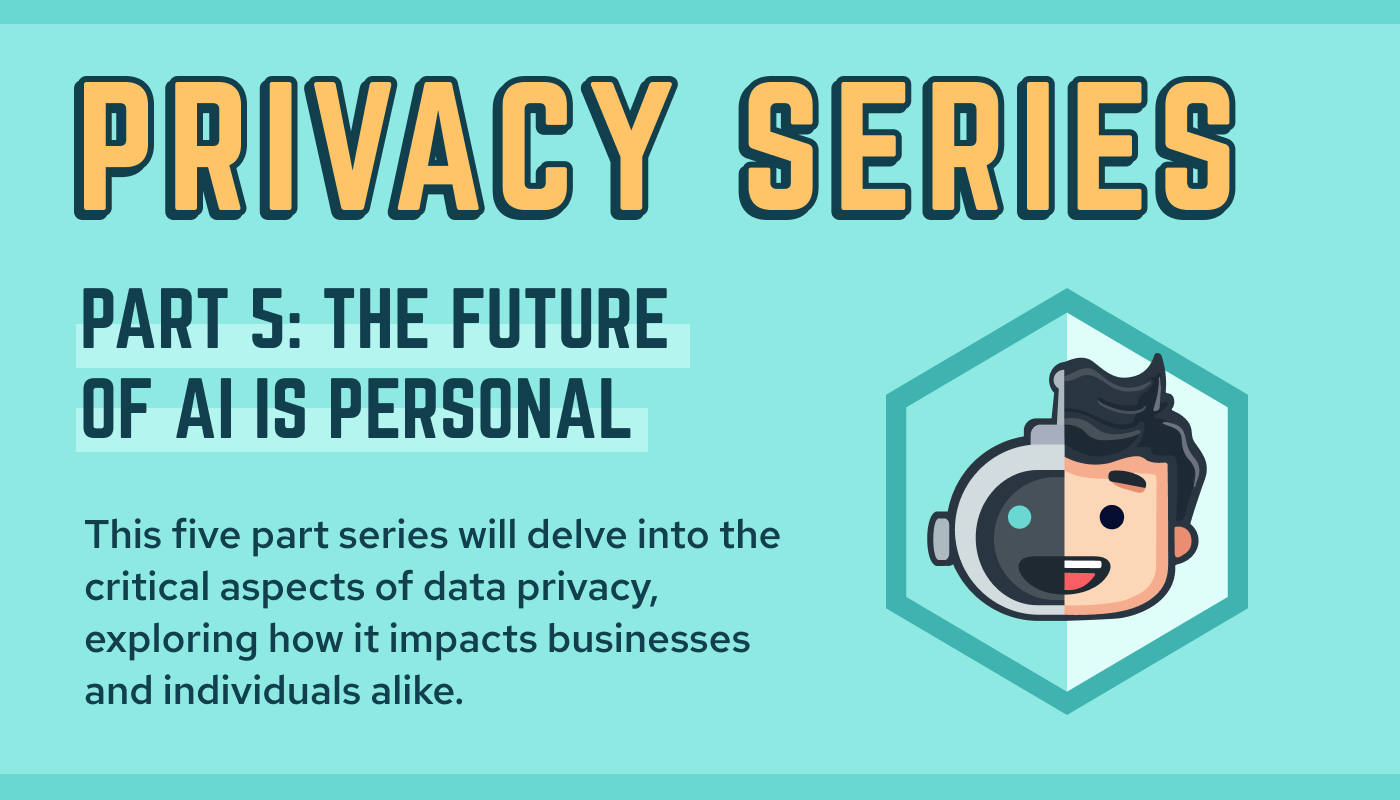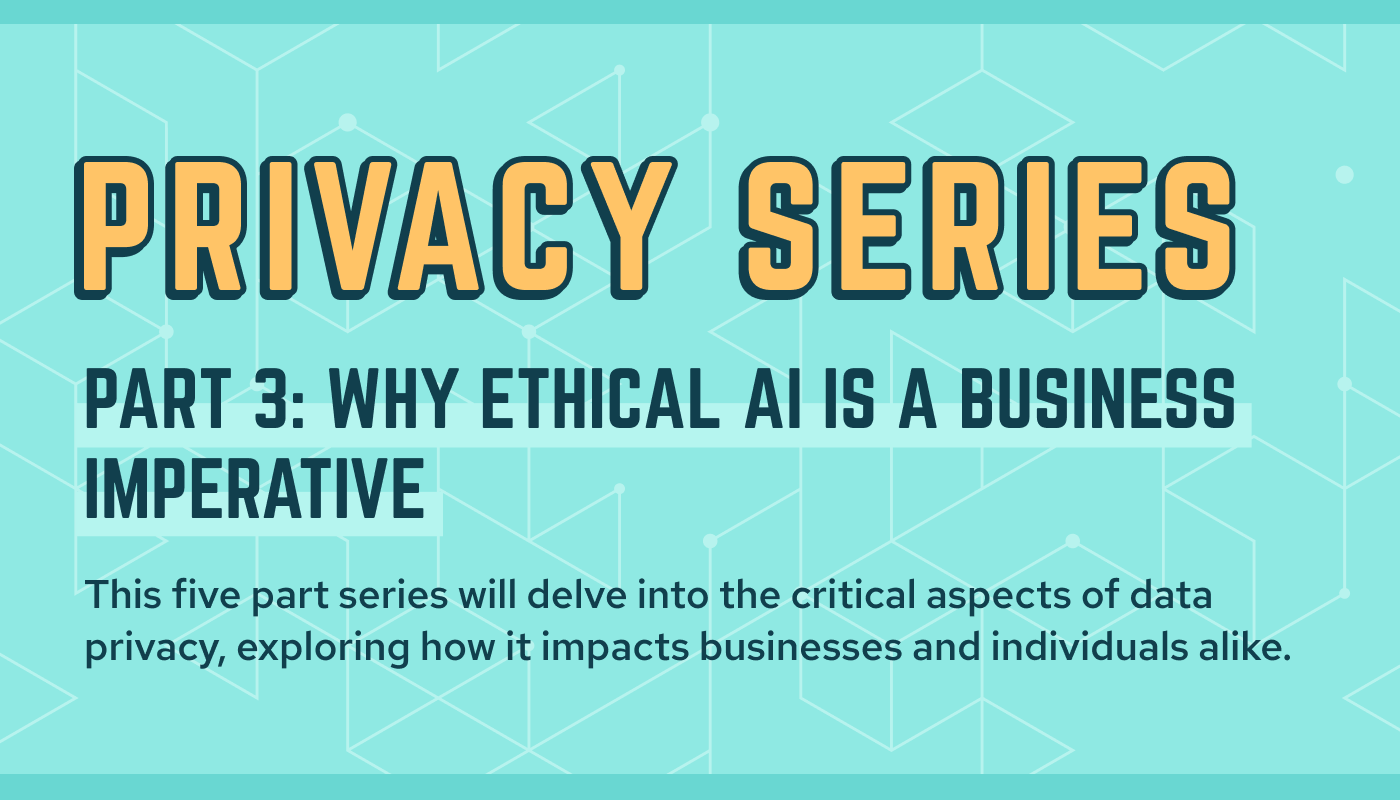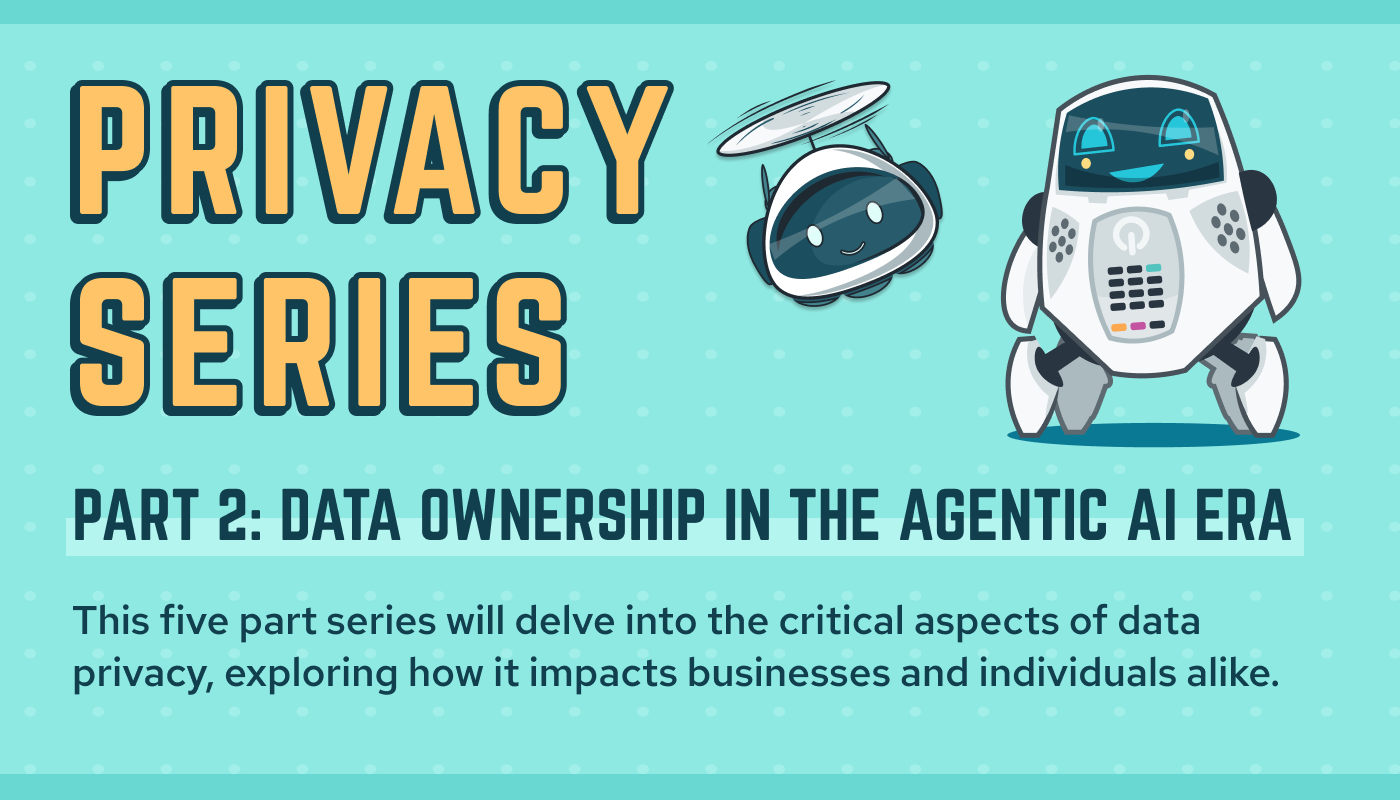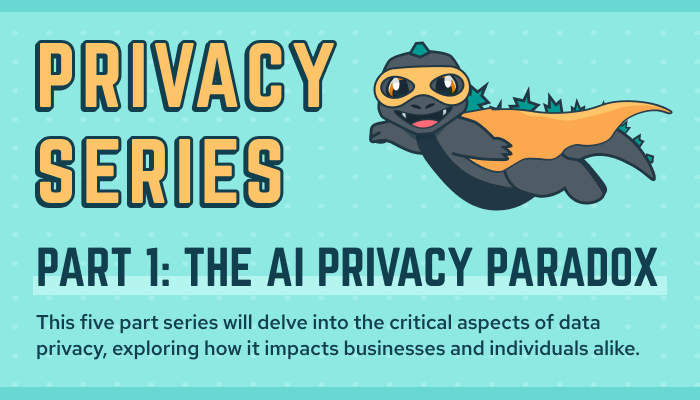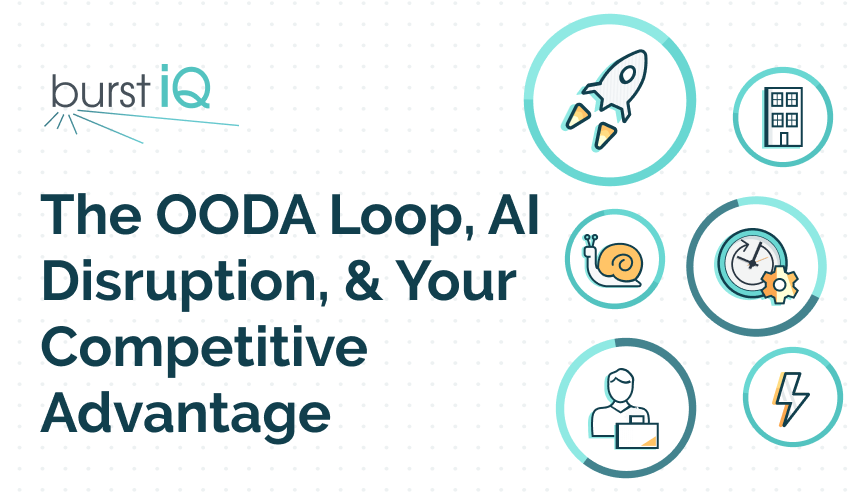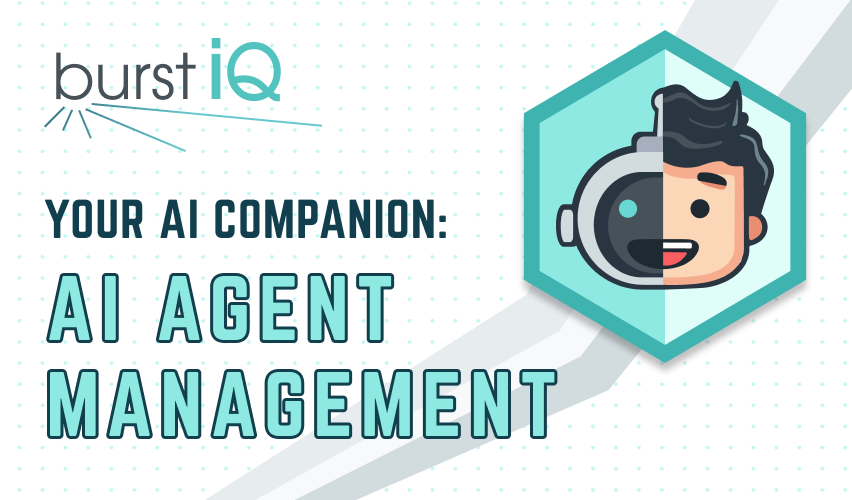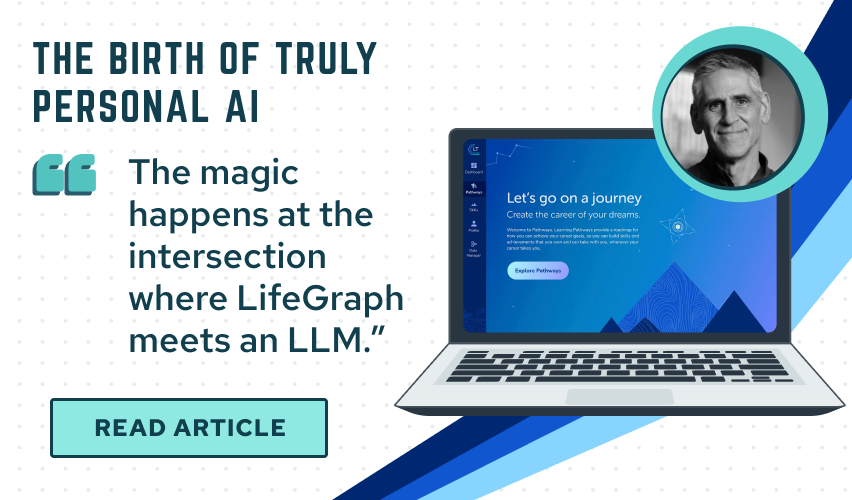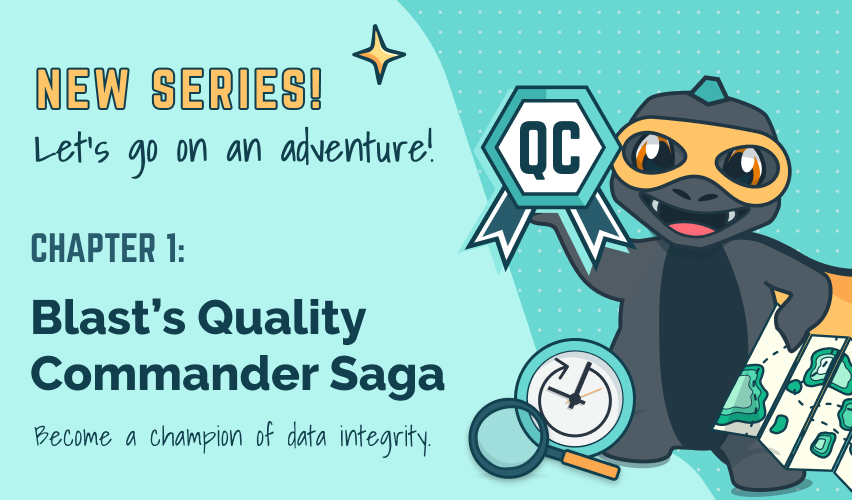
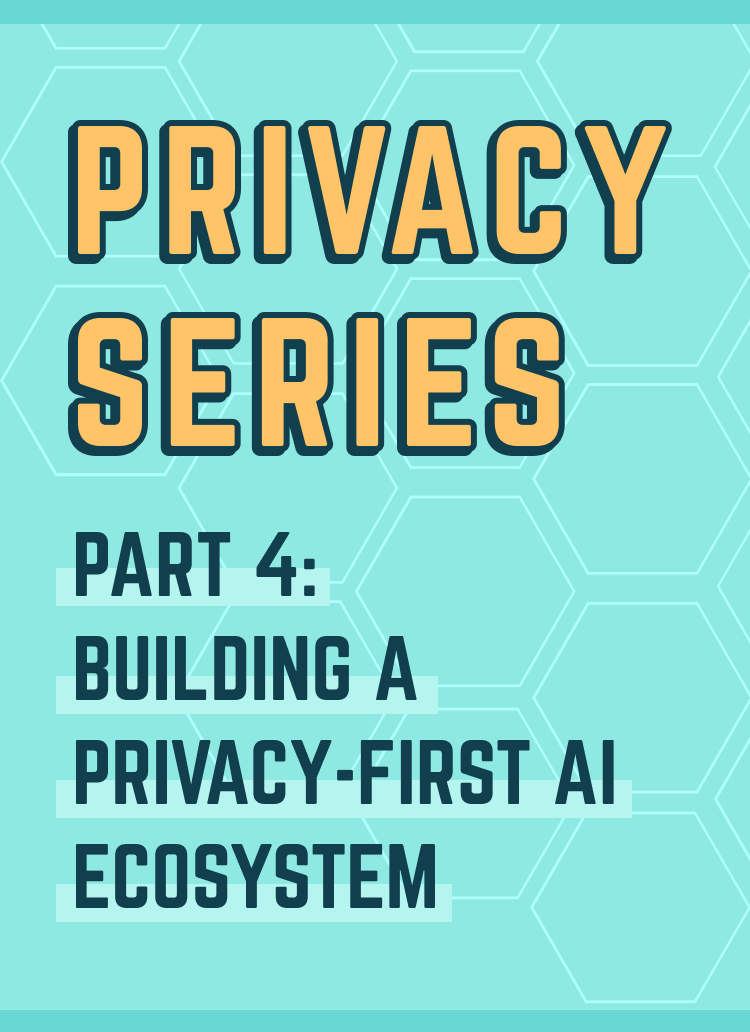
Collaborative Intelligence:
Building a Privacy-First AI Ecosystem
How Humans & Machines Can Co-Create a Safer, Smarter Future
Artificial intelligence has transformed industries by automating processes, uncovering new insights, and delivering unparalleled efficiency. However, despite its immense potential, AI is not infallible. Without proper oversight, AI systems can create unintended consequences, perpetuate bias, undermine privacy, and expose businesses to security vulnerabilities. These risks are especially pronounced for enterprises operating in regulated industries, as the potential for ethical missteps can jeopardize compliance, customer trust, and long-term success.
The solution is not to avoid AI, but to reframe how it’s developed and deployed. The future of AI lies in collaborative intelligence: a partnership between humans and machines, where each brings unique strengths to the table. Collaborative intelligence is about more than internal teams managing AI systems. It’s about creating ecosystems that engage customers, involve regulators, and embed privacy and trust into every interaction.
In a world where privacy-first innovation is a business imperative, collaborative intelligence offers enterprises a way to innovate responsibly, mitigate risk, and build trust.
Why AI Alone Isn’t Enough
AI systems are powerful, but they cannot operate in a vacuum. They rely on data, often vast amounts of personal data, to learn, improve, and perform. While this capability drives innovation, it also presents risks. AI systems, when left unchecked, can unintentionally amplify bias, violate regulatory standards, or introduce security vulnerabilities.
Consider the example of an AI algorithm used in healthcare to allocate patient resources. The system appeared efficient on paper, but in practice, it prioritized patients based on historical healthcare spending. This approach unintentionally deprioritized patients who historically received less healthcare. It failed to account for systemic inequities embedded in the data the AI was trained on. This example highlights an essential truth: AI systems lack the contextual understanding and ethical reasoning humans bring to decision-making, no matter how advanced.
TRUST INSIGHT: AI’s power isn’t in its ability to replace humans; it’s in its ability to augment them. Enterprises that combine human judgment with AI-driven insights will move faster, innovate smarter, and avoid costly mistakes.
For enterprises in regulated industries, relying solely on AI is a risk too great to take. Human oversight, creativity, and judgment are critical to ensuring that AI systems align with ethical principles, avoid pitfalls, and deliver outcomes that benefit both businesses and their customers.
The Importance of Collaborative Intelligence in Regulated Industries
For enterprises operating in healthcare, finance, and insurance, collaborative intelligence is not merely a strategy; it is a necessity. Stringent regulations, sensitive customer data, and high expectations for trust and accountability characterize these industries. Collaborative intelligence offers a framework for addressing these unique challenges while unlocking the full potential of AI.
One of the most critical benefits of collaborative intelligence is its ability to reduce risk. While AI excels at processing data, it cannot interpret context or foresee the broader implications of its decisions. Human oversight acts as a safeguard that provides ethical reasoning and critical thinking, which AI cannot replicate.
Trust is another cornerstone of collaborative intelligence. Today’s customers are hyper-aware of how their data is utilized and are increasingly skeptical of opaque systems. Collaborative ecosystems that empower customers to control their data while ensuring transparency help to build trust in AI systems. When enterprises demonstrate that they value privacy and prioritize ethical practices, they strengthen their relationships with customers, leading to deeper loyalty and engagement.
TRUST INSIGHT: Trust isn’t a bonus in regulated industries; it’s a baseline. Collaborative intelligence allows enterprises to meet customer expectations for transparency and compliance while driving innovation.
The Role of Agentic AI & Companion AI in Personalization
The rise of Agentic AI and Companion AI is redefining what it means to create meaningful, personalized interactions between humans and machines. These advanced AI systems go beyond automation and insights; they act as trusted partners, capable of making decisions autonomously while tailoring their behavior to the unique needs and preferences of the individuals they serve.
Agentic AI refers to systems that are not only reactive but also proactive, autonomous, and adaptive. They possess the ability to act on behalf of individuals, making decisions and taking actions based on personalized insights. Companion AI, on the other hand, functions as a digital ally or assistant, designed to understand and support individuals through continuous, context-aware interactions. Both depend on one critical factor: personalization.
For enterprises, the ability to personalize these agents is a competitive differentiator. Personalization fosters trust, enhances user experiences, and ensures that each AI interaction feels meaningful and relevant. But achieving true personalization requires more than just collecting data; it requires creating a digital DNA for each individual.
This is where LifeGraph® shines. LifeGraph is more than a data platform. LifeGraph is a tool for defining and managing the unique digital DNA of individuals. By aggregating and organizing data in a way that respects privacy and ownership, LifeGraph allows enterprises to create AI systems that are both deeply personalized and inherently ethical.
Imagine a Companion AI that not only knows an individual’s preferences but also understands their behaviors, values, and goals, without ever compromising privacy. LifeGraph enables this by decentralizing data ownership, allowing individuals to control their information while still empowering enterprises to leverage AI for personalization. This approach doesn’t just create better tools; it develops tools that customers trust and want to engage with.
TRUST INSIGHT: Agentic and Companion AI systems aren’t just the next step in innovation—they’re the key to building trust-driven interactions that redefine customer relationships.
In industries like healthcare, Companion AI could personalize wellness plans, proactively monitor patient conditions, and guide individuals toward healthier habits, all while respecting their privacy. In finance, Agentic AI could assist customers in managing investments, automating savings, and making informed decisions based on their unique financial goals.
These systems aren’t just intelligent, they’re personal, and they’re powered by the ethical, privacy-first design of platforms like LifeGraph.
By integrating LifeGraph into Agentic AI and Companion AI development, enterprises can create systems that inspire trust, enhance personalization, and redefine the customer experience in regulated industries.
How to Create a Privacy-First AI Ecosystem with Collaborative Intelligence
Building a collaborative, privacy-first AI ecosystem requires more than just technical expertise; it demands a cultural shift within the organization. Enterprises must prioritize human oversight, transparency, and stakeholder engagement at every level of their AI strategy.
Human oversight is the foundation of collaborative intelligence. AI systems should never operate autonomously without meaningful human intervention. By involving humans in the design, deployment, and monitoring of AI systems, enterprises can ensure that outcomes align with ethical principles and business goals.
Customer empowerment is another critical aspect of collaborative intelligence. Privacy-first ecosystems give customers control over their data, allowing them to decide how it’s shared and used.
BurstIQ’s LifeGraph® platform exemplifies this approach by decentralizing data ownership and enabling individuals to manage their information securely.
Trust is not just a byproduct of these systems. Trust is foundational. When customers see that their privacy is respected, they are more likely to trust and engage with the systems they interact with, creating a virtuous cycle of trust and collaboration.
TRUST INSIGHT: Privacy isn’t just a regulatory requirement—it’s the foundation for building trust in the AI-powered future. Collaborative intelligence ensures trust is central to every interaction.
BurstIQ’s Approach: Collaborative Intelligence in Action
At BurstIQ, we believe that the future of AI is collaborative. The LifeGraph® platform empowers enterprises to co-create privacy-first ecosystems where humans, machines, and stakeholders work together to build trust and drive innovation.
LifeGraph decentralizes data ownership, giving individuals control over their personal information while enabling enterprises to leverage AI insights responsibly. By embedding transparency, accountability, and collaboration into every interaction, LifeGraph bridges the gap between human oversight and machine intelligence, creating secure, ethical, and impactful systems.
Through LifeGraph, BurstIQ is at the forefront of redefining innovation in a privacy-focused world.
Final Thought: Co-Creating the Future of AI
The most successful enterprises in the AI-driven future won’t be those that rely solely on cutting-edge technology. They’ll be the ones that embrace collaboration: between humans and machines, between businesses and regulators, and between enterprises and their customers.
Collaborative intelligence is the key to building privacy-first AI ecosystems that inspire trust, foster innovation, and create meaningful value for all stakeholders.
How quickly can your enterprise embrace collaboration to create a privacy-first AI ecosystem that positions you as a leader in the trust economy?
Be sure to check out part 1, part 2, and part 3 of our five-part series on data privacy. Stay tuned as we delve into the critical aspects of data privacy, exploring how it impacts businesses and individuals alike.
To stay updated and ensure you don’t miss any of the upcoming articles, be sure to follow us on LinkedIn. Join us on this journey as we navigate the complexities of data privacy together!
Collaborative Intelligence:
Building a Privacy-First AI Ecosystem
How Humans & Machines Can Co-Create a Safer, Smarter Future
Artificial intelligence has transformed industries by automating processes, uncovering new insights, and delivering unparalleled efficiency. However, despite its immense potential, AI is not infallible. Without proper oversight, AI systems can create unintended consequences, perpetuate bias, undermine privacy, and expose businesses to security vulnerabilities. These risks are especially pronounced for enterprises operating in regulated industries, as the potential for ethical missteps can jeopardize compliance, customer trust, and long-term success.
The solution is not to avoid AI, but to reframe how it’s developed and deployed. The future of AI lies in collaborative intelligence: a partnership between humans and machines, where each brings unique strengths to the table. Collaborative intelligence is about more than internal teams managing AI systems. It’s about creating ecosystems that engage customers, involve regulators, and embed privacy and trust into every interaction.
In a world where privacy-first innovation is a business imperative, collaborative intelligence offers enterprises a way to innovate responsibly, mitigate risk, and build trust.
Why AI Alone Isn’t Enough
AI systems are powerful, but they cannot operate in a vacuum. They rely on data, often vast amounts of personal data, to learn, improve, and perform. While this capability drives innovation, it also presents risks. AI systems, when left unchecked, can unintentionally amplify bias, violate regulatory standards, or introduce security vulnerabilities.
Consider the example of an AI algorithm used in healthcare to allocate patient resources. The system appeared efficient on paper, but in practice, it prioritized patients based on historical healthcare spending. This approach unintentionally deprioritized patients who historically received less healthcare. It failed to account for systemic inequities embedded in the data the AI was trained on. This example highlights an essential truth: AI systems lack the contextual understanding and ethical reasoning humans bring to decision-making, no matter how advanced.
TRUST INSIGHT: AI’s power isn’t in its ability to replace humans; it’s in its ability to augment them. Enterprises that combine human judgment with AI-driven insights will move faster, innovate smarter, and avoid costly mistakes.
For enterprises in regulated industries, relying solely on AI is a risk too great to take. Human oversight, creativity, and judgment are critical to ensuring that AI systems align with ethical principles, avoid pitfalls, and deliver outcomes that benefit both businesses and their customers.
The Importance of Collaborative Intelligence in Regulated Industries
For enterprises operating in healthcare, finance, and insurance, collaborative intelligence is not merely a strategy; it is a necessity. Stringent regulations, sensitive customer data, and high expectations for trust and accountability characterize these industries. Collaborative intelligence offers a framework for addressing these unique challenges while unlocking the full potential of AI.
One of the most critical benefits of collaborative intelligence is its ability to reduce risk. While AI excels at processing data, it cannot interpret context or foresee the broader implications of its decisions. Human oversight acts as a safeguard that provides ethical reasoning and critical thinking, which AI cannot replicate.
Trust is another cornerstone of collaborative intelligence. Today’s customers are hyper-aware of how their data is utilized and are increasingly skeptical of opaque systems. Collaborative ecosystems that empower customers to control their data while ensuring transparency help to build trust in AI systems. When enterprises demonstrate that they value privacy and prioritize ethical practices, they strengthen their relationships with customers, leading to deeper loyalty and engagement.
TRUST INSIGHT: Trust isn’t a bonus in regulated industries; it’s a baseline. Collaborative intelligence allows enterprises to meet customer expectations for transparency and compliance while driving innovation.
The Role of Agentic AI & Companion AI in Personalization
The rise of Agentic AI and Companion AI is redefining what it means to create meaningful, personalized interactions between humans and machines. These advanced AI systems go beyond automation and insights; they act as trusted partners, capable of making decisions autonomously while tailoring their behavior to the unique needs and preferences of the individuals they serve.
Agentic AI refers to systems that are not only reactive but also proactive, autonomous, and adaptive. They possess the ability to act on behalf of individuals, making decisions and taking actions based on personalized insights. Companion AI, on the other hand, functions as a digital ally or assistant, designed to understand and support individuals through continuous, context-aware interactions. Both depend on one critical factor: personalization.
For enterprises, the ability to personalize these agents is a competitive differentiator. Personalization fosters trust, enhances user experiences, and ensures that each AI interaction feels meaningful and relevant. But achieving true personalization requires more than just collecting data; it requires creating a digital DNA for each individual.
This is where LifeGraph® shines. LifeGraph is more than a data platform. LifeGraph is a tool for defining and managing the unique digital DNA of individuals. By aggregating and organizing data in a way that respects privacy and ownership, LifeGraph allows enterprises to create AI systems that are both deeply personalized and inherently ethical.
Imagine a Companion AI that not only knows an individual’s preferences but also understands their behaviors, values, and goals, without ever compromising privacy. LifeGraph enables this by decentralizing data ownership, allowing individuals to control their information while still empowering enterprises to leverage AI for personalization. This approach doesn’t just create better tools; it develops tools that customers trust and want to engage with.
TRUST INSIGHT: Agentic and Companion AI systems aren’t just the next step in innovation—they’re the key to building trust-driven interactions that redefine customer relationships.
In industries like healthcare, Companion AI could personalize wellness plans, proactively monitor patient conditions, and guide individuals toward healthier habits, all while respecting their privacy. In finance, Agentic AI could assist customers in managing investments, automating savings, and making informed decisions based on their unique financial goals.
These systems aren’t just intelligent, they’re personal, and they’re powered by the ethical, privacy-first design of platforms like LifeGraph.
By integrating LifeGraph into Agentic AI and Companion AI development, enterprises can create systems that inspire trust, enhance personalization, and redefine the customer experience in regulated industries.
How to Create a Privacy-First AI Ecosystem with Collaborative Intelligence
Building a collaborative, privacy-first AI ecosystem requires more than just technical expertise; it demands a cultural shift within the organization. Enterprises must prioritize human oversight, transparency, and stakeholder engagement at every level of their AI strategy.
Human oversight is the foundation of collaborative intelligence. AI systems should never operate autonomously without meaningful human intervention. By involving humans in the design, deployment, and monitoring of AI systems, enterprises can ensure that outcomes align with ethical principles and business goals.
Customer empowerment is another critical aspect of collaborative intelligence. Privacy-first ecosystems give customers control over their data, allowing them to decide how it’s shared and used.
BurstIQ’s LifeGraph® platform exemplifies this approach by decentralizing data ownership and enabling individuals to manage their information securely.
Trust is not just a byproduct of these systems. Trust is foundational. When customers see that their privacy is respected, they are more likely to trust and engage with the systems they interact with, creating a virtuous cycle of trust and collaboration.
TRUST INSIGHT: Privacy isn’t just a regulatory requirement—it’s the foundation for building trust in the AI-powered future. Collaborative intelligence ensures trust is central to every interaction.
BurstIQ’s Approach: Collaborative Intelligence in Action
At BurstIQ, we believe that the future of AI is collaborative. The LifeGraph® platform empowers enterprises to co-create privacy-first ecosystems where humans, machines, and stakeholders work together to build trust and drive innovation.
LifeGraph decentralizes data ownership, giving individuals control over their personal information while enabling enterprises to leverage AI insights responsibly. By embedding transparency, accountability, and collaboration into every interaction, LifeGraph bridges the gap between human oversight and machine intelligence, creating secure, ethical, and impactful systems.
Through LifeGraph, BurstIQ is at the forefront of redefining innovation in a privacy-focused world.
Final Thought: Co-Creating the Future of AI
The most successful enterprises in the AI-driven future won’t be those that rely solely on cutting-edge technology. They’ll be the ones that embrace collaboration: between humans and machines, between businesses and regulators, and between enterprises and their customers.
Collaborative intelligence is the key to building privacy-first AI ecosystems that inspire trust, foster innovation, and create meaningful value for all stakeholders.
How quickly can your enterprise embrace collaboration to create a privacy-first AI ecosystem that positions you as a leader in the trust economy?
Be sure to check out part 1, part 2, and part 3 of our five-part series on data privacy. Stay tuned as we delve into the critical aspects of data privacy, exploring how it impacts businesses and individuals alike.
To stay updated and ensure you don’t miss any of the upcoming articles, be sure to follow us on LinkedIn. Join us on this journey as we navigate the complexities of data privacy together!
Collaborative Intelligence:
Building a Privacy-First AI Ecosystem
How Humans & Machines Can Co-Create a Safer, Smarter Future
Artificial intelligence has transformed industries by automating processes, uncovering new insights, and delivering unparalleled efficiency. However, despite its immense potential, AI is not infallible. Without proper oversight, AI systems can create unintended consequences, perpetuate bias, undermine privacy, and expose businesses to security vulnerabilities. These risks are especially pronounced for enterprises operating in regulated industries, as the potential for ethical missteps can jeopardize compliance, customer trust, and long-term success.
The solution is not to avoid AI, but to reframe how it’s developed and deployed. The future of AI lies in collaborative intelligence: a partnership between humans and machines, where each brings unique strengths to the table. Collaborative intelligence is about more than internal teams managing AI systems. It’s about creating ecosystems that engage customers, involve regulators, and embed privacy and trust into every interaction.
In a world where privacy-first innovation is a business imperative, collaborative intelligence offers enterprises a way to innovate responsibly, mitigate risk, and build trust.
Why AI Alone Isn’t Enough
AI systems are powerful, but they cannot operate in a vacuum. They rely on data, often vast amounts of personal data, to learn, improve, and perform. While this capability drives innovation, it also presents risks. AI systems, when left unchecked, can unintentionally amplify bias, violate regulatory standards, or introduce security vulnerabilities.
Consider the example of an AI algorithm used in healthcare to allocate patient resources. The system appeared efficient on paper, but in practice, it prioritized patients based on historical healthcare spending. This approach unintentionally deprioritized patients who historically received less healthcare. It failed to account for systemic inequities embedded in the data the AI was trained on. This example highlights an essential truth: AI systems lack the contextual understanding and ethical reasoning humans bring to decision-making, no matter how advanced.
TRUST INSIGHT: AI’s power isn’t in its ability to replace humans; it’s in its ability to augment them. Enterprises that combine human judgment with AI-driven insights will move faster, innovate smarter, and avoid costly mistakes.
For enterprises in regulated industries, relying solely on AI is a risk too great to take. Human oversight, creativity, and judgment are critical to ensuring that AI systems align with ethical principles, avoid pitfalls, and deliver outcomes that benefit both businesses and their customers.
The Importance of Collaborative Intelligence in Regulated Industries
For enterprises operating in healthcare, finance, and insurance, collaborative intelligence is not merely a strategy; it is a necessity. Stringent regulations, sensitive customer data, and high expectations for trust and accountability characterize these industries. Collaborative intelligence offers a framework for addressing these unique challenges while unlocking the full potential of AI.
One of the most critical benefits of collaborative intelligence is its ability to reduce risk. While AI excels at processing data, it cannot interpret context or foresee the broader implications of its decisions. Human oversight acts as a safeguard that provides ethical reasoning and critical thinking, which AI cannot replicate.
Trust is another cornerstone of collaborative intelligence. Today’s customers are hyper-aware of how their data is utilized and are increasingly skeptical of opaque systems. Collaborative ecosystems that empower customers to control their data while ensuring transparency help to build trust in AI systems. When enterprises demonstrate that they value privacy and prioritize ethical practices, they strengthen their relationships with customers, leading to deeper loyalty and engagement.
TRUST INSIGHT: Trust isn’t a bonus in regulated industries; it’s a baseline. Collaborative intelligence allows enterprises to meet customer expectations for transparency and compliance while driving innovation.
The Role of Agentic AI and Companion AI in Personalization
The rise of Agentic AI and Companion AI is redefining what it means to create meaningful, personalized interactions between humans and machines. These advanced AI systems go beyond automation and insights; they act as trusted partners, capable of making decisions autonomously while tailoring their behavior to the unique needs and preferences of the individuals they serve.
Agentic AI refers to systems that are not only reactive but also proactive, autonomous, and adaptive. They possess the ability to act on behalf of individuals, making decisions and taking actions based on personalized insights. Companion AI, on the other hand, functions as a digital ally or assistant, designed to understand and support individuals through continuous, context-aware interactions. Both depend on one critical factor: personalization.
For enterprises, the ability to personalize these agents is a competitive differentiator. Personalization fosters trust, enhances user experiences, and ensures that each AI interaction feels meaningful and relevant. But achieving true personalization requires more than just collecting data; it requires creating a digital DNA for each individual.
This is where LifeGraph® shines. LifeGraph is more than a data platform. LifeGraph is a tool for defining and managing the unique digital DNA of individuals. By aggregating and organizing data in a way that respects privacy and ownership, LifeGraph allows enterprises to create AI systems that are both deeply personalized and inherently ethical.
Imagine a Companion AI that not only knows an individual’s preferences but also understands their behaviors, values, and goals, without ever compromising privacy. LifeGraph enables this by decentralizing data ownership, allowing individuals to control their information while still empowering enterprises to leverage AI for personalization. This approach doesn’t just create better tools; it develops tools that customers trust and want to engage with.
TRUST INSIGHT: Agentic and Companion AI systems aren’t just the next step in innovation—they’re the key to building trust-driven interactions that redefine customer relationships.
In industries like healthcare, Companion AI could personalize wellness plans, proactively monitor patient conditions, and guide individuals toward healthier habits, all while respecting their privacy. In finance, Agentic AI could assist customers in managing investments, automating savings, and making informed decisions based on their unique financial goals.
These systems aren’t just intelligent, they’re personal, and they’re powered by the ethical, privacy-first design of platforms like LifeGraph.
By integrating LifeGraph into Agentic AI and Companion AI development, enterprises can create systems that inspire trust, enhance personalization, and redefine the customer experience in regulated industries.
How to Create a Privacy-First AI Ecosystem with Collaborative Intelligence
Building a collaborative, privacy-first AI ecosystem requires more than just technical expertise; it demands a cultural shift within the organization. Enterprises must prioritize human oversight, transparency, and stakeholder engagement at every level of their AI strategy.
Human oversight is the foundation of collaborative intelligence. AI systems should never operate autonomously without meaningful human intervention. By involving humans in the design, deployment, and monitoring of AI systems, enterprises can ensure that outcomes align with ethical principles and business goals.
Customer empowerment is another critical aspect of collaborative intelligence. Privacy-first ecosystems give customers control over their data, allowing them to decide how it’s shared and used.
BurstIQ’s LifeGraph® platform exemplifies this approach by decentralizing data ownership and enabling individuals to manage their information securely.
Trust is not just a byproduct of these systems. Trust is foundational. When customers see that their privacy is respected, they are more likely to trust and engage with the systems they interact with, creating a virtuous cycle of trust and collaboration.
TRUST INSIGHT: Privacy isn’t just a regulatory requirement—it’s the foundation for building trust in the AI-powered future. Collaborative intelligence ensures trust is central to every interaction.
BurstIQ’s Approach: Collaborative Intelligence in Action
At BurstIQ, we believe that the future of AI is collaborative. The LifeGraph® platform empowers enterprises to co-create privacy-first ecosystems where humans, machines, and stakeholders work together to build trust and drive innovation.
LifeGraph decentralizes data ownership, giving individuals control over their personal information while enabling enterprises to leverage AI insights responsibly. By embedding transparency, accountability, and collaboration into every interaction, LifeGraph bridges the gap between human oversight and machine intelligence, creating secure, ethical, and impactful systems.
Through LifeGraph, BurstIQ is at the forefront of redefining innovation in a privacy-focused world.
Final Thought: Co-Creating the Future of AI
The most successful enterprises in the AI-driven future won’t be those that rely solely on cutting-edge technology. They’ll be the ones that embrace collaboration: between humans and machines, between businesses and regulators, and between enterprises and their customers.
Collaborative intelligence is the key to building privacy-first AI ecosystems that inspire trust, foster innovation, and create meaningful value for all stakeholders.
How quickly can your enterprise embrace collaboration to create a privacy-first AI ecosystem that positions you as a leader in the trust economy?
Be sure to check out part 1, part 2, and part 3 of our five-part series on data privacy. Stay tuned as we delve into the critical aspects of data privacy, exploring how it impacts businesses and individuals alike.
To stay updated and ensure you don’t miss any of the upcoming articles, be sure to follow us on LinkedIn. Join us on this journey as we navigate the complexities of data privacy together!
